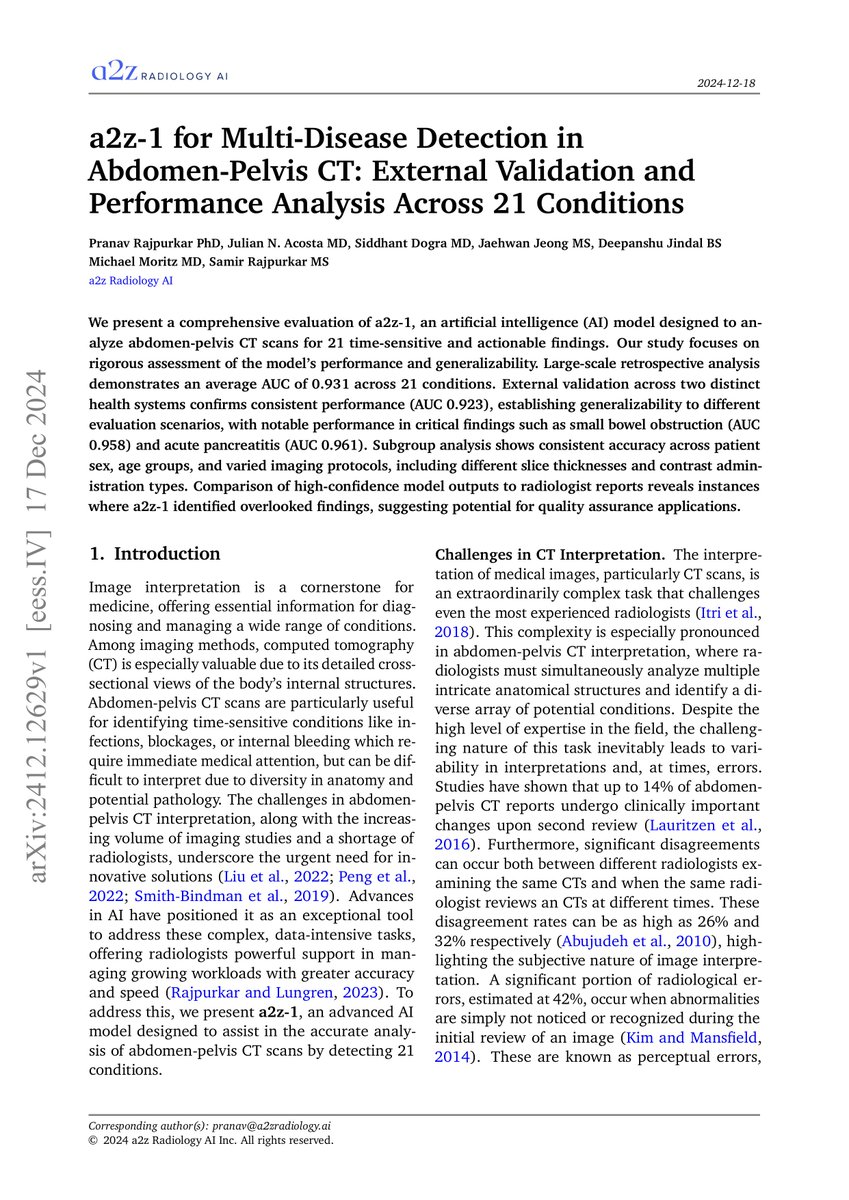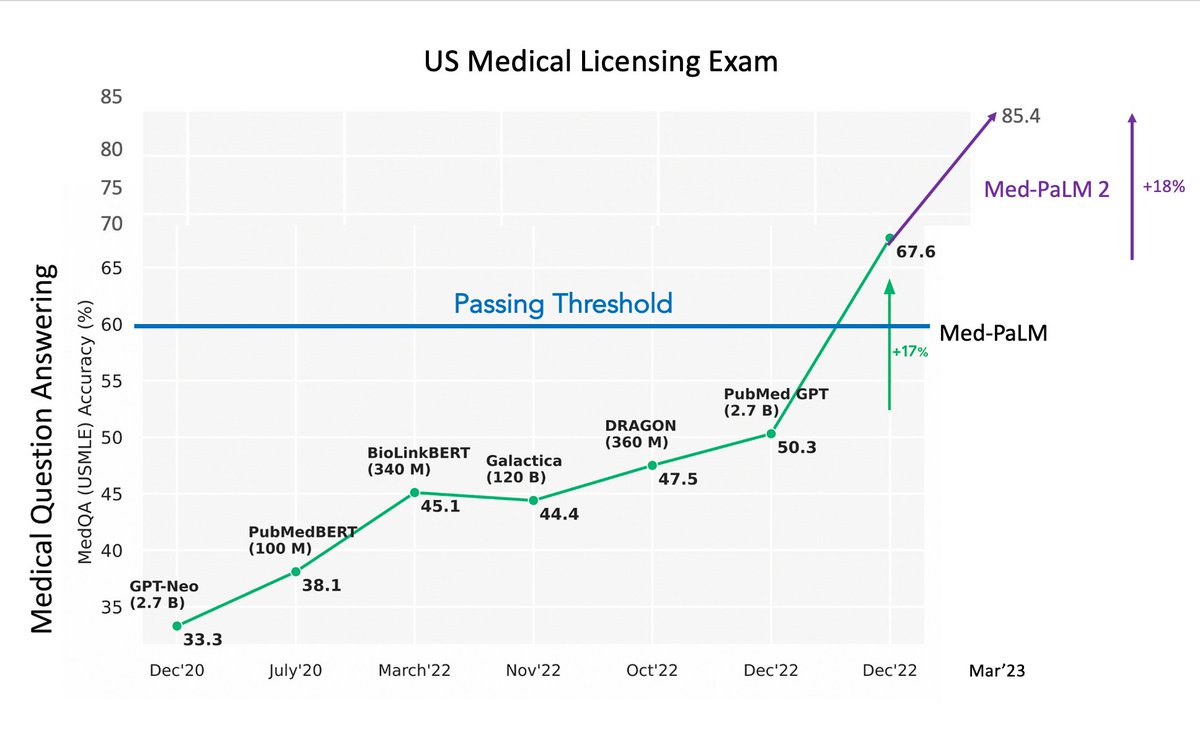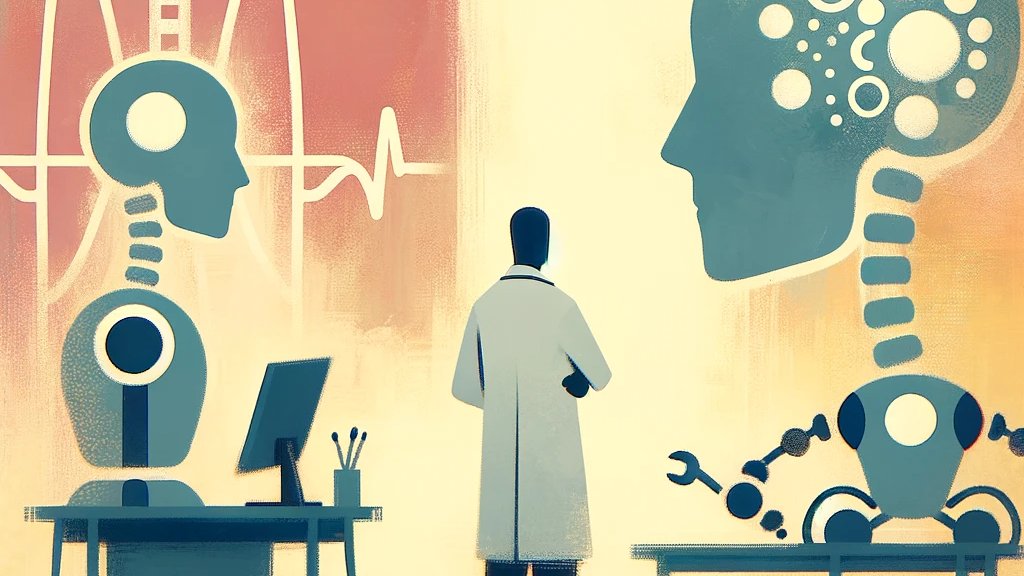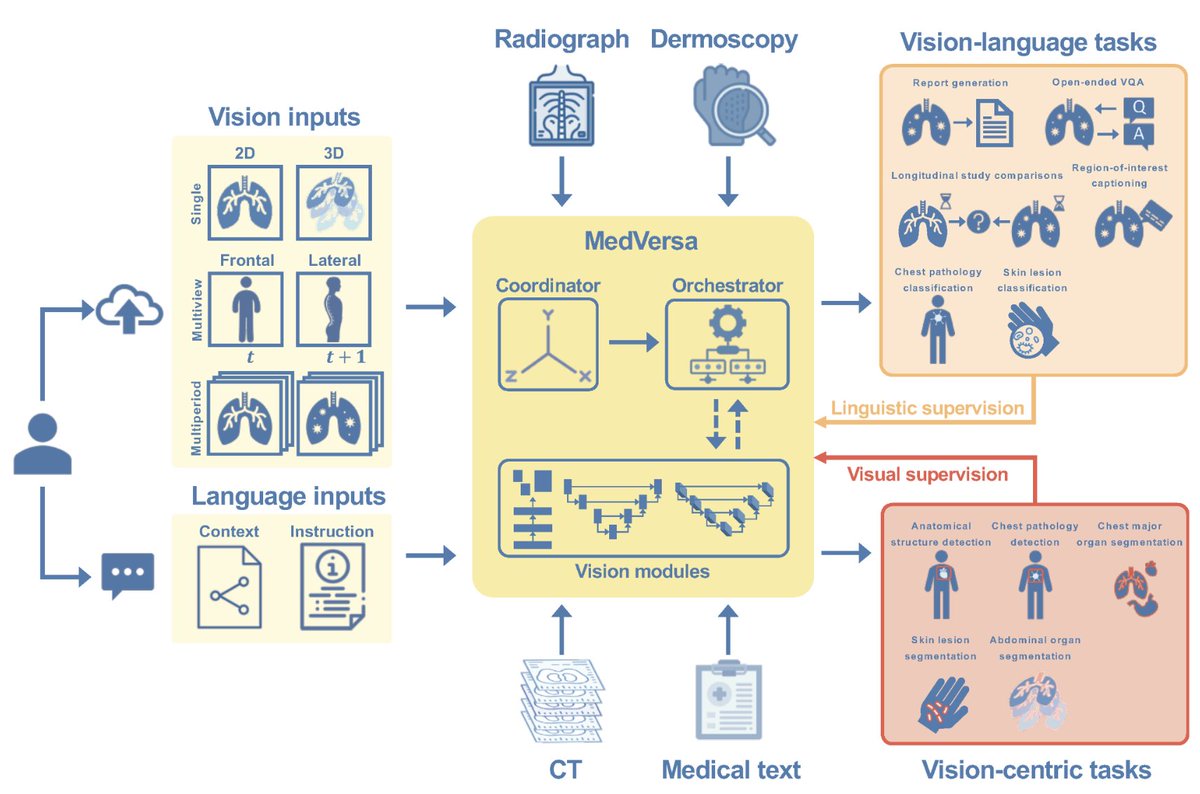
Julián Nicolás Acosta
@jn_acosta
Medical AI Researcher at Rajpurkar Lab @HarvardDBMI | Scientist at @a2zradiologyai | Neurologist | Opinions are my own. 🇦🇷🇺🇸
ID: 1154366912899551232
25-07-2019 12:24:53
217 Tweet
495 Followers
1,1K Following

Happy to share our review discussing the challenges and opportunities of multimodal biomedical AI! Guido J. Falcone MD, ScD, MPH Pranav Rajpurkar Eric Topol
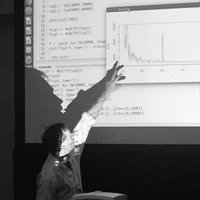
Practical computational population level genetic course by Guido J. Falcone MD, ScD, MPH at Neurocritical Care Society #NCS2022 with Raj Dhar Julián Nicolás Acosta and AriErcole How to do GWAS, PRS and Mendelian randomisation in R
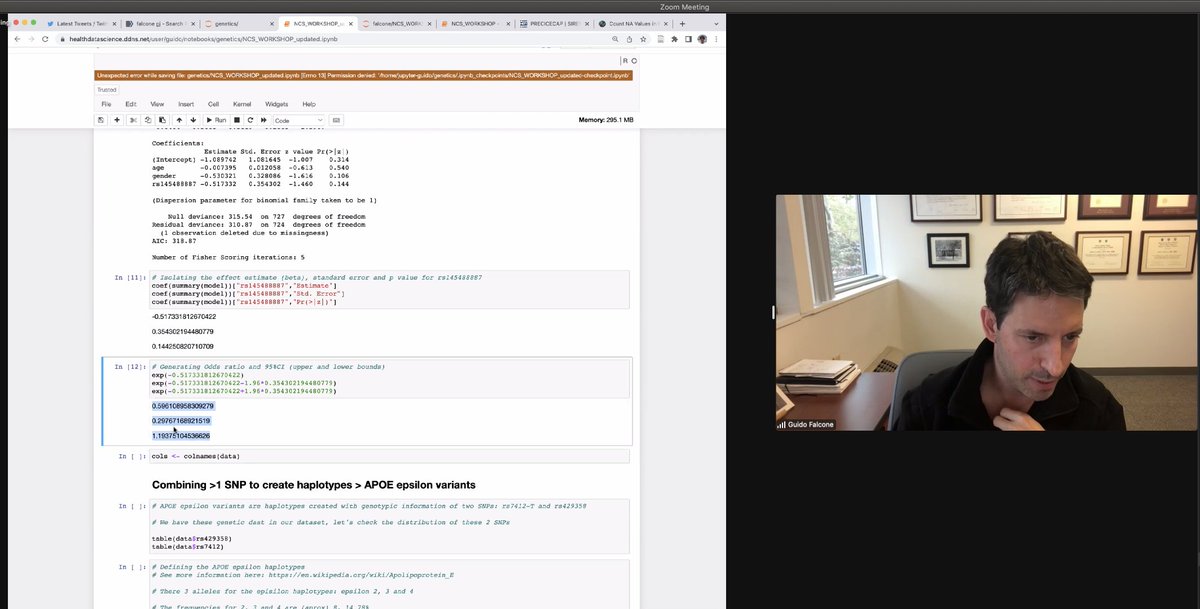







Just published Our review article of all the medical #AI randomized controlled trials The Lancet Digital Health thelancet.com/journals/landi… Ryan Han Julián Nicolás Acosta Pranav Rajpurkar
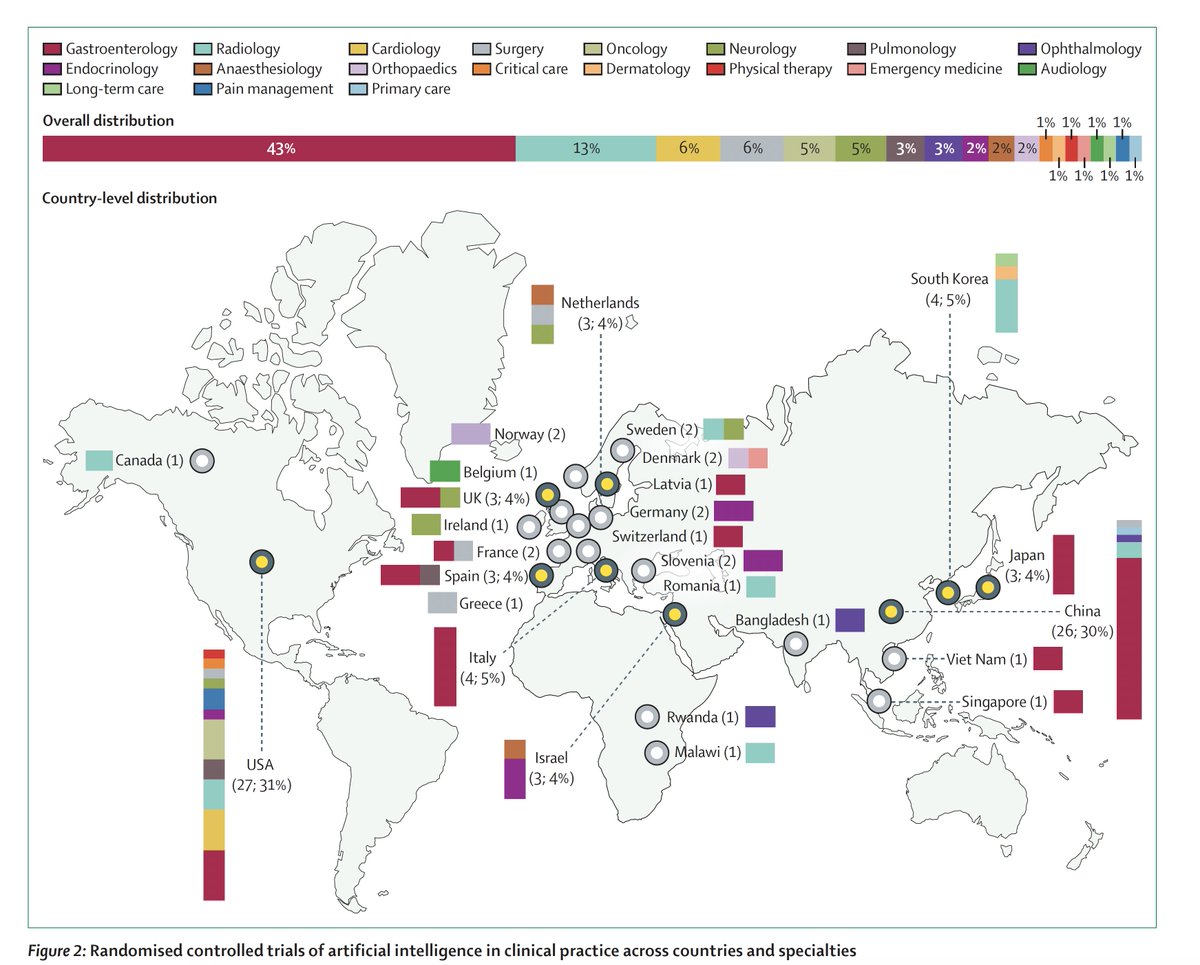



How AI might change medical care—Interviews w/DBMI's Isaac Kohane & Pranav Rajpurkar begin 3:03. Bonus note: The mom who diagnosed her own son's tethered cord syndrome w/ChatGPT after 3 years & 17 doctors (3:33) co-keynotes our 10th annual Precision Medicine conference 10/1/24.


Are you a radiologist interested in shaping the future of AI in healthcare? At Rajpurkar Lab, we are looking for collaborators to join us in an exciting upcoming project. If interested, please reach out - DMs are open! Pranav Rajpurkar




John Hopfield and Geoffrey Hinton, along with collaborators, have created a beautiful and insightful bridge between physics and AI. They invented neural networks that were not only inspired by the brain, but also by central notions in physics such as energy, temperature, system
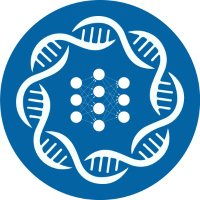
🚨 AI in Radiology Alert! 🚨 How much can AI help radiologists reduce reporting time while maintaining accuracy? Harvard Medical School & collaborators present a pilot study on AI-assisted radiology workflows using AI-generated draft reports! Authors: Julián Nicolás Acosta, Sid Dogra,
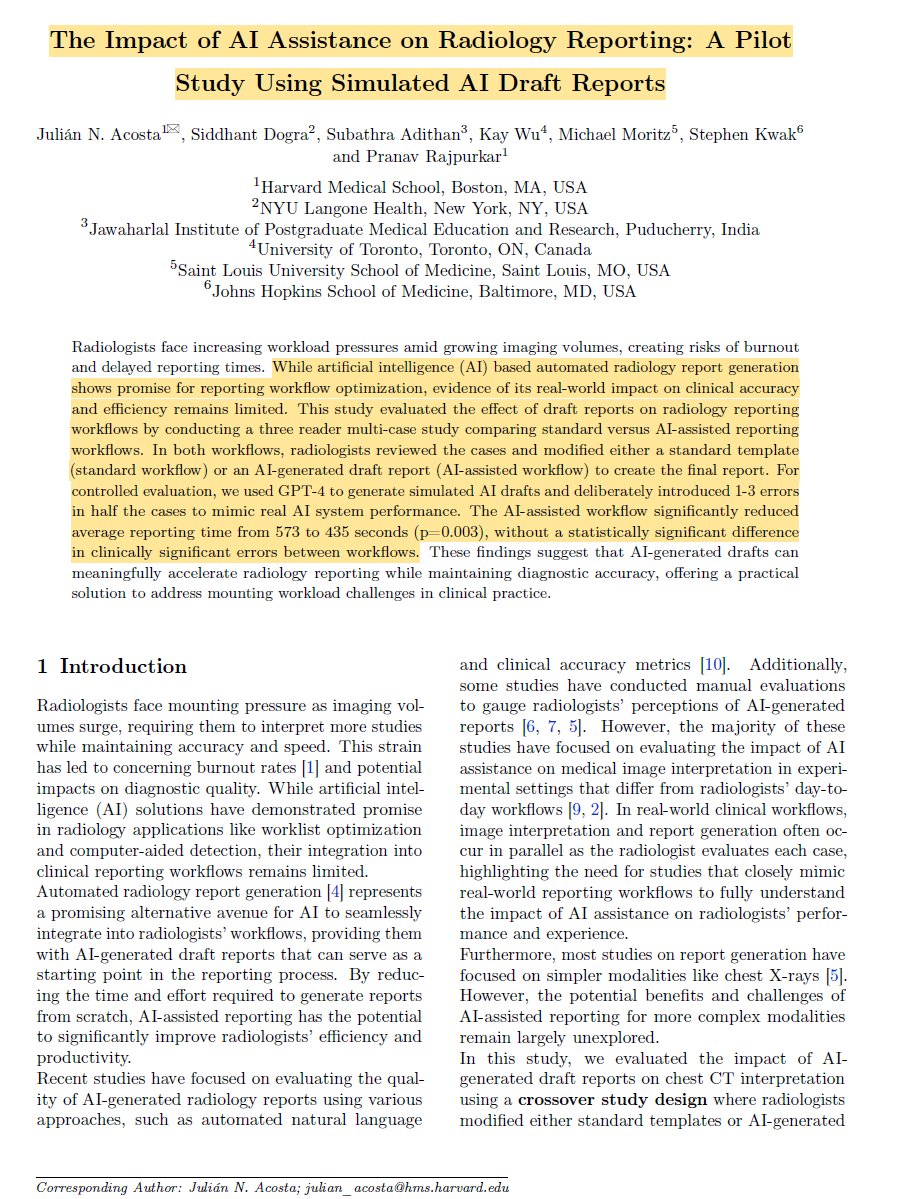

Incredibly proud to share a2z Radiology AI's first research paper evaluating a2z-1. Our AI model detects 21 conditions in abdomen-pelvis CTs with an AUC of 0.931. This represents the most comprehensive external validation of a multi-disease detection AI in abdominal imaging to
